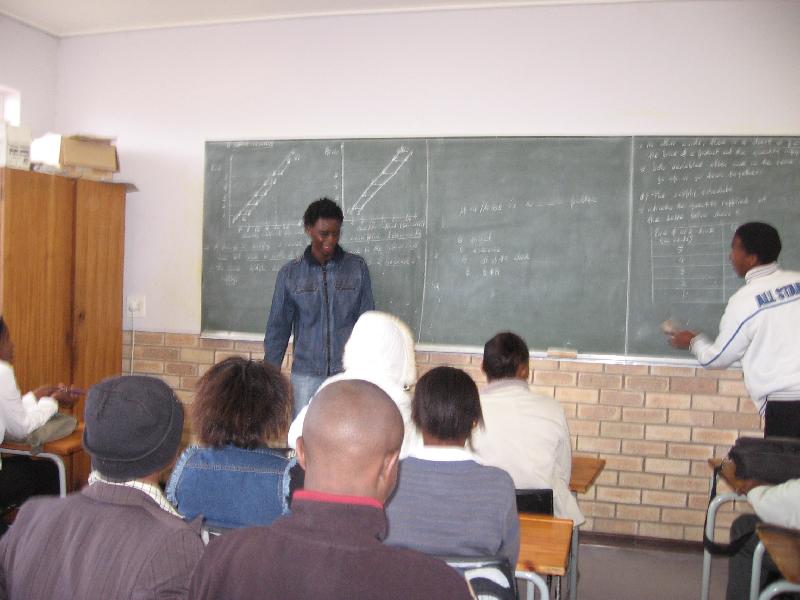
Some progress has been made in access to education but just because you have bums on seats doesn't mean students are actually learning anything. The 2011 Census shows enormous improvements since 1996 in access to education but leaves persistent questions about quality largely unanswered.
Indicators demonstrating greater access include a halving of those 20 years and older with no schooling at all — from 19% in 1996 to almost 9% in 2011. In the same age group, those with a matric increased from 16% in 1996 to 20.4% in 2001, and up further to nearly 30% in 2011.
Those with higher education increased from 8.4% in 2001 to nearly 12% in 2011, and here it is black Africans whose increased participation has been the most dramatic, nearly doubling since 1996.
"But just because you have bums on seats doesn't mean students are actually learning anything," said Nic Spaull, a researcher in the economics department at Stellenbosch University.
He cited Census data that showed improved access to preschool education: only 23% of five-year-olds were enrolled in an educational institution in 1996, but this has soared to 81% now.
However, access to education is "primarily the means to the more important outcome, which is learning," Spaull said. "So we should also be asking about the quality of those new pre-schools."
Research he is yet to publish shows that 98% of grade six-aged children are enrolled in a school but only 71% of them are functionally literate and only 59% are functionally numerate. "This shows that at least a quarter of children are enrolled but learning shockingly little in six years of formal full-time schooling," he said.
Ruksana Osman, head of the Wits school of education, said there should be less celebration about access and more focus on success and retention.
"Yes, many more young people are getting into school and higher education institutions but how many are succeeding in those contexts?" she said.
Retention in education remained the greatest challenge, she said.
Viewed through a gender lens, the Census shows both stasis but also gains. Many more black African women older than 20 have no schooling compared with men — 1.5-million against 900 000.
But in higher education, the data show women making gains in fields of study traditionally dominated by men. Their enrolment in business, commerce, finance and accounting increased from about 17% in 2001 to 30% in 2011.
Acknowledging some gender inequalities, Spaull argued that the real disparities lie more in socio-economic and geographical factors. "Whether you are a boy or a girl is less important than if you are rich or poor in terms of access to quality education," he said.
Census 2011 also shows that adult illiteracy has decreased over the past 12 years but remains high. Nearly a fifth (19%) of people older than 15 are illiterate (that is, have no schooling) or functionally illiterate (have less than a grade seven) compared to 31.5% in 2001 and 33.6% in 1996.
Gauteng (10%) and the Western Cape (12%) have the lowest levels of adult illiteracy, but the other seven provinces show rates of 20% and more.
- Victoria John studied journalism at Rhodes University. She writes for the Mail & Guardian. This article was published on the Mail & Guardian online.
